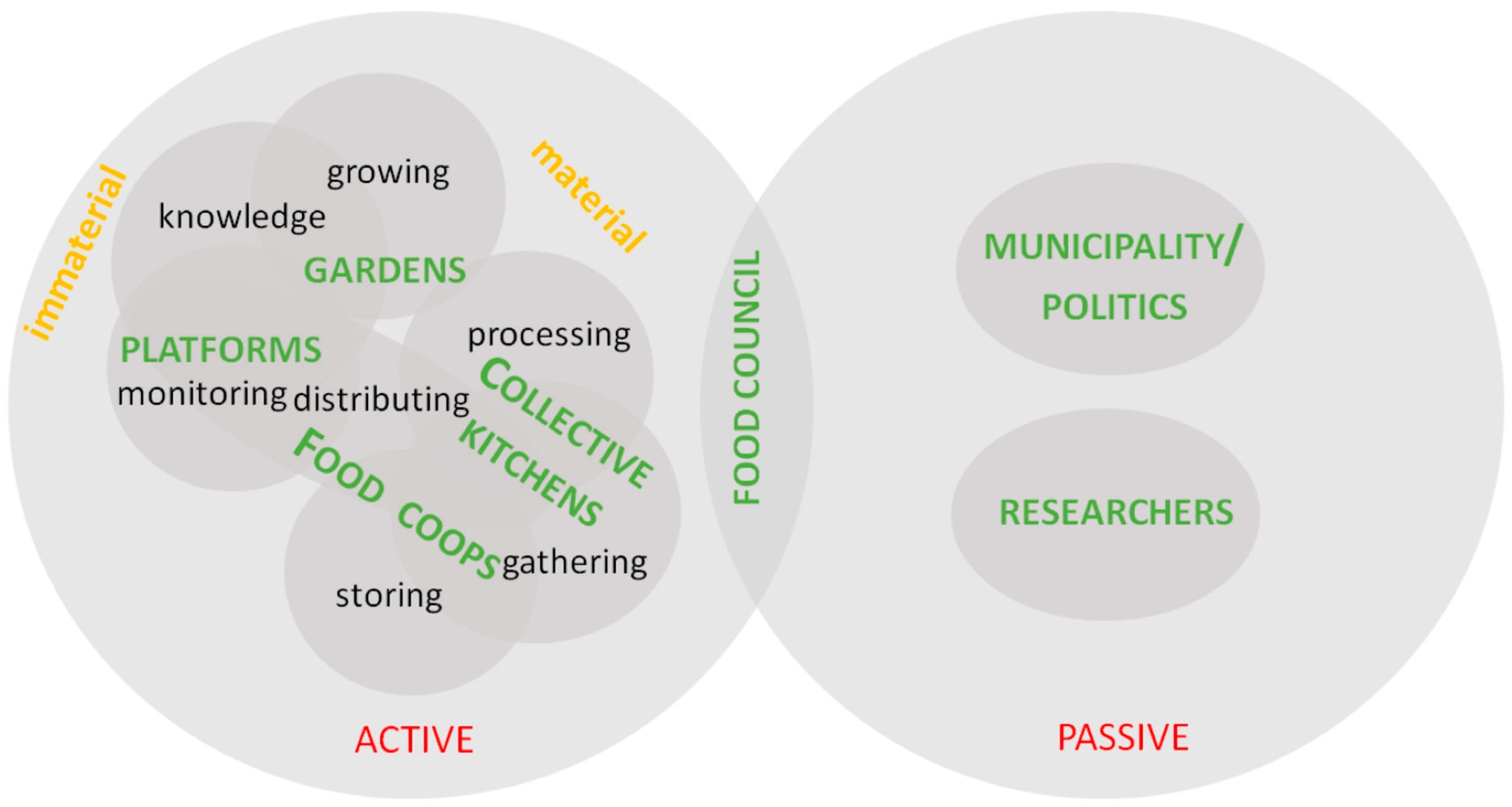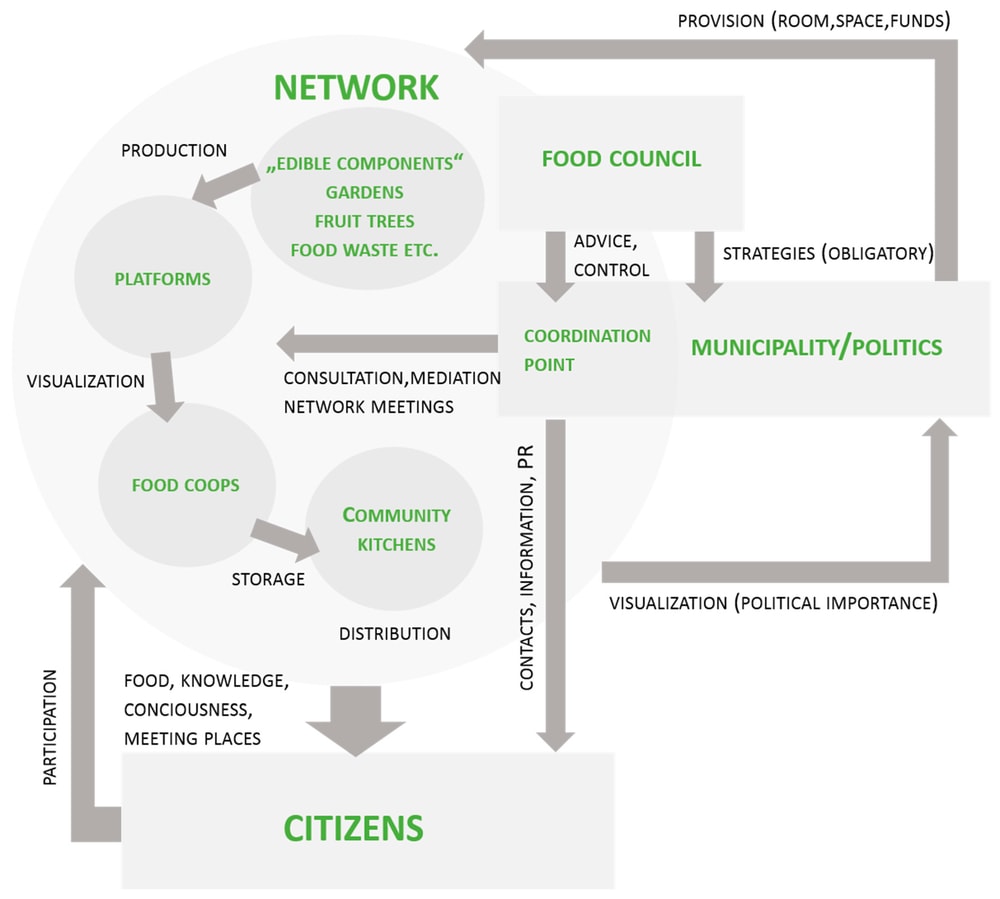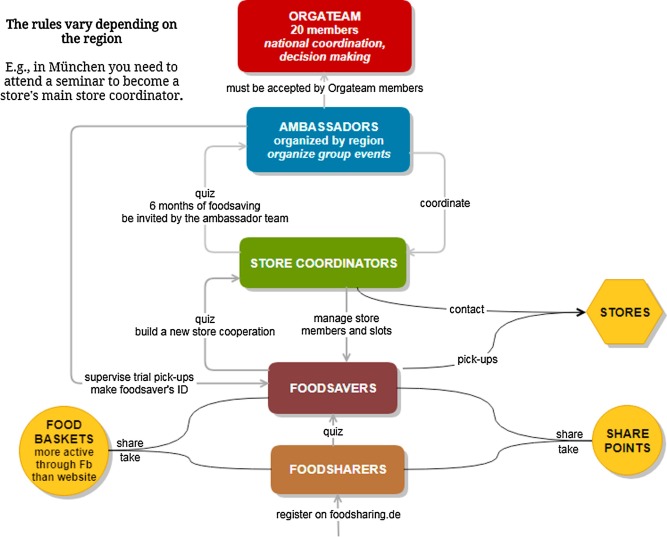
Abstract: Urban planning is facing multi-layered challenges to manage the transformation towards a more sustainable and inclusive society. The recently evolved concept of an “urban commons” responds to the crucial need to re-situate residents as key actors. Urban food commons summarize all initiatives that are food-related (e.g., cultivation, harvest, and distribution), aiming at a visualization and utilization of value chains and the commons-based linkage between them.

We explored first insights of food commons in Berlin based on semi-structured, in-depth interviews. Urban food commons strengthen identification, participation, self-organization, and social resilience, are steered by bottom-up processes, and can be a powerful tool for a transformation towards urban sustainability. However, a viable political integration of existing initiatives lacks due to structural implementation problems. Respondents recommend a pooling of all initiatives in a strong network and a mediation interface to coordinate between food commons and city administration and politics. A combined approach of commons and edible cities will be helpful for the development of future prove food systems.
Sharing food and risk in Berlin’s urban food commons (2018)

Abstract: Public fridges are open-access community-stewarded spaces where food can be freely and anonymously shared. As such, they are fertile ground for understanding the obstacles and opportunities for governing food as a commons. This paper examines the governance strategies that have developed within and around Foodsharing.de, a grassroots food-rescue network in Berlin, to manage food as a commons. Analyzing the commoning of food in Foodsharing.de provides a novel entry point into the multi-scalar and multi-stakeholder governance processes that shape our broader food system. In this paper, I further develop the concept of urban food commons to specifically analyze the governance of food and risk. In particular, I draw on qualitative research to analyze a conflict between Foodsharing.de and the Berlin Food Safety Authority over the potential health and safety risks of public fridges. Building on this, I show how different governance practices, informed by different risk ontologies and understandings of the common good/hazard of food, come into tension through the everyday practices of sharing food. This paper departs from previous research that has focused on how the benefits of food commons are shared and regulated at various scales, to also explore how their risks are managed, or could be managed, within an urban food commons framework.